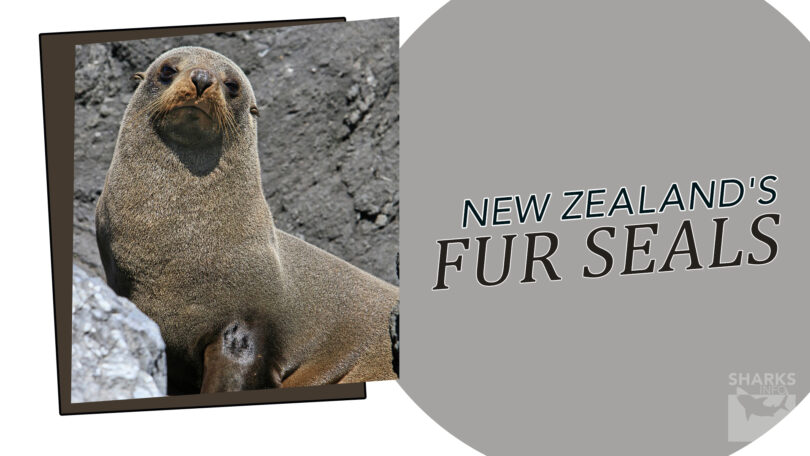New Zealand with its diverse wildlife and breathtaking landscapes has made it one of the favorite destinations for adventure seekers and nature enthusiasts. Among wildlife, Fur seals stand out as the most captivating creatures that capture the hearts of locals as well as tourists alike. This article will reveal 10 fascinating fun facts about the fur seals that make them truly remarkable creatures.
Discovering New Zealand’s Fur Seals: 10 Fun Facts
From their playful nature to remarkable adaptations, fur seals are the true emblem of the natural beauty of New Zealand. The 10 fun facts about New Zealand’s Fur Seals are explained below:
Fun Fact #1: Ancient Mariners
Fur seals are ancient mariners because they trace their lineage around 10 to 15 million years back. They are well adapted to thrive on land as well as in water. Their streamlined bodies and flippers allow them to maneuver through the water waves gracefully.
Fun Fact #2: Two Distinct Species
Two distinct species of fur seals are native to New Zealand: the long-nosed fur seal (Arctocephalus townsendi) and the New Zealand fur seal (Arctocephalus forsteri). The long-nosed fur seal resides primarily on the subantarctic island whereas the New Zealand fur seal is found commonly along the coastal regions.
Fun Fact #3: Playful Personalities
The playful nature of the fur seal entertains viewers the most. They are often spotted engaging in mock fights, surfing on waves, and even “body-surfing” onshore. This behavior even helps the young seals to develop skills necessary for thriving in the water or on the land.
Fun Fact #4: Distinctive Fur
As the name indicates, the body of fur seals is covered with a dense fur coat which provides them protection as well as insulation from extreme heat or cold. The coloration of furs varies from dark brown to lighter shades. The fur coat of fur seals helps them to maintain their body temperature when on land and provides buoyancy when in water.
Fun Fact #5: Impressive Divers
They are skilled divers and are capable of plunging to an extreme depth of 200 meters, particularly in the food search. Moreover, these species are well-evolved to hold their breath for a longer duration. For instance, New Zealand fur seals remain submerged for about 11 minutes!
Fun Fact #6: Breeding and Colonies
Fur seals congregate in large groups called colonies, established on rocky shores, remote coastal areas, and even offshore islands. During the spawning season, the males compete for territories and show impressive displays of aggression, indicating their willingness to breed.
Fun Fact #7: Maternal Care
After breeding, female fur seals provide exceptional care to their young ones. After birth, the mother protects and nurses the pups for several weeks. During this time, the pups remain in a pod to socialize and learn skills.
Fun Fact #8: Resting and Molting
During the breeding season, fur seals spend most of their time on land. They are also capable of molting – where they shed and regrow fur, necessary to maintain a waterproof coat and heath. During molting, fur seals appear to be more lethargic and spend most of their time onshore.
Fun Fact #9: Threats and Conservation
Even in their natural habitat, fur seals are being threatened by human activities like habitat destruction, fishing gear entanglement, and pollution. New Zealand has implemented various conservation measures such as marine reserves and regulations to protect these precious creatures and to minimize human impact.
Fun Fact #10: Eco-Tourism and Education
Fur seals are becoming popular among the locals as well as the visitors. Responsible ecotourism initiatives provide opportunities to observe these creatures in their natural habitat while fostering awareness about their conservation needs and the importance of fur seals without causing harm to them.
Final Thought
Fur seals are an integral and captivating part of the coastal ecosystem of New Zealand. With their remarkable adaptations, captivating behaviors, and incredible dives through the ocean depths, these marine creatures continue to inspire the locals as well as the visitors, who have the privilege of encountering them. It is therefore important to conserve and protect these stunning creatures and the delicate ecosystems they inhabit, to ensure that future generations can enjoy the wonder of New Zealand’s fur seals.







